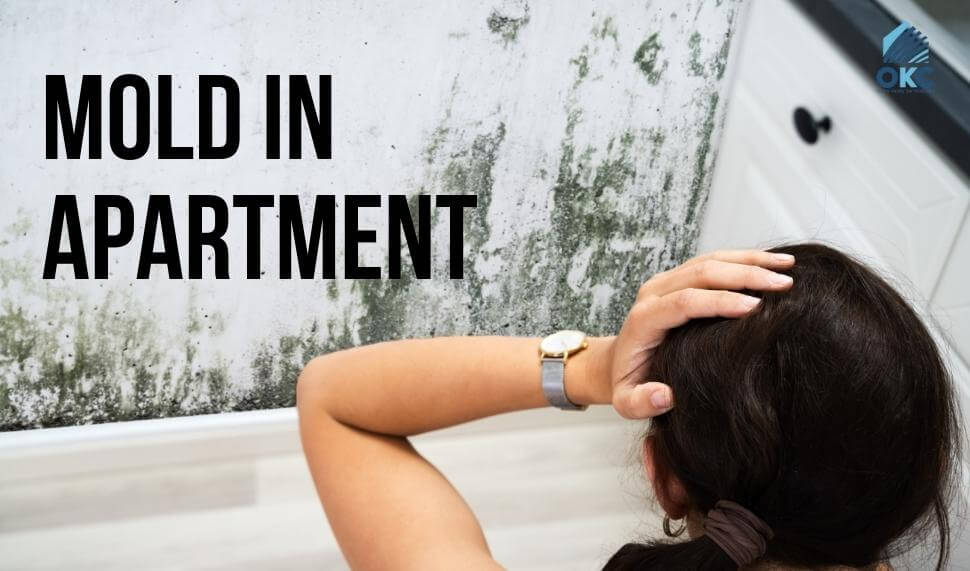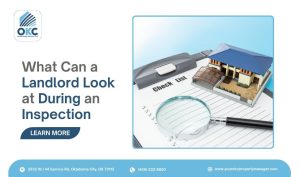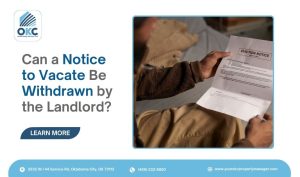As a renter, you would want an apartment that is like a home to you. A place where you get some refreshment after a long day of hard work. A healthy environment for you and your family. Imagine settling into a new apartment, being excited about having your new home, and living there for quite a while. But one day, you find out that the apartment is infested with mold. What should you do? Should you contact the landlord or fix the problem yourself?
In this guide, we’ll explore who is responsible for mold in apartment and the essential tenants’ rights you should know to navigate the rental landscape with confidence and clarity. If you’re unsure what to do when dealing with mold in an apartment. So, let’s dive in and equip you with the knowledge you need to protect your home sweet home!
Mold Issues in Apartment – Should You Worry?
Yes. You should worry about mold in your apartment. Mold is a fungus that grows rapidly because of excess moisture and in warm, dark places. The most common types of household molds might be found around bathrooms, basements (especially those with damp carpeting), drywall ceiling tiles, carpets, wallpaper under sinks, and plumbing pipes. Mold infestation can cause a lot of problems, including health problems, if left untreated. The mold releases mold spores into the air, which is enough to make you sick since those spores can settle in human lungs. Especially people with health issues like allergies or asthma are at high risk.
What Causes Mold in Apartments?
As mold is a naturally occurring fungal growth found in damp places and apartments, it is often caused by excessive moisture and poor ventilation. Here are some common causes of mold growth in apartments:
- Leaky appliances such as refrigerators, ice makers, and dishwashers.
- Water leaks (Burst pipes and defective plumbing).
- Wet walls, ceilings, and floors due to water damage.
- Undetected or unaddressed leaks in the apartment.
- Lack of proper ventilation in the bathroom and kitchen.
- Humidity levels that are too high.
- Wet shoes and damp clothes that are not dried properly.
- Covering or concealing radiators.
- Poorly ventilated crawl spaces.
- Lack of proper ventilation in the apartment.
It is important to address mold growth as much as possible, as it can cause health problems and can lead to damage to surfaces and furnishings in your home. If you suspect you have mold in your apartment, it is recommended to have it inspected and removed by a professional.
How to Detect Signs of Mold in Apartments?
If there is mold in your rental unit, then you should try to detect it as early as possible. It’s really important for the health of you and your family members. But unfortunately, mold detection is very challenging. Look for signs of mold growth underneath surfaces, like carpets, wallpaper, cabinets, and walls. Also, check the areas in the apartment that are highly susceptible, like shower walls, window moldings, Refrigerator door seals, and around air conditioners. Here are some signs and symptoms of mold you’ll encounter:
- Your apartment smells like it has a musty odor, mildew, or earthy.
- Water damage signs on the wall, like bulging drywall or stains.
- Green or black spots appear on the surfaces.
A professional mold inspection or home inspection can help detect hidden mold growth and identify moisture problems before they worsen.
Health Risks of Mold Exposure in Apartments
Most molds aren’t harmful, like the one that grows on shower tiles. But there are some kinds of mold that grow in your apartment that can be harmful. Mold poses serious risks to people with underlying health problems, infants, children, elderly people, immune-compromised, and people with respiratory conditions, allergic reactions, and asthma. You’ll start facing some health-related problems if there’s any mold growing in your apartment. Here are some mold allergy symptoms:
- Watery eyes, coughing, or trouble breathing.
- Sinus Headaches
- Watery and Itchy eyes
- Congestion and runny nose

Black Mold in Apartment: Is it Dangerous?
Black mold, technically known as Stachybotrys chartarum is the most dangerous type of fungus because it can cause serious health issues after periods of exposure, including respiratory issues, mental impairment, skin inflammation, and nausea. It also damages internal organs as well. Mold is a silent killer that often goes unnoticed until it’s too late. With black mold thriving in dark places with limited ventilation, you may never know when this potentially life-threatening problem will become the worst nightmare for you and your family.
How Responsibility for Mold in an Apartment Is Determined
When mold appears in a rental unit, it often creates tension between landlords and tenants over who is legally responsible. The answer depends on what caused the mold, how quickly the issue was addressed, and whether both parties fulfilled their responsibilities. In most rental situations, mold responsibility is shared, but liability usually falls on either the landlord or the tenant based on the source of the problem.
Below, we break down when a landlord is responsible for mold in an apartment and when the tenant may be held accountable.
Is the Landlord Responsible for Mold in an Apartment?
In most of the cases, landlords are responsible for maintaining a habitable living environment, one that’s free from health hazards like mold. If mold develops because of structural issues, plumbing leaks, or roof damage, the landlord is usually liable for addressing the root cause and performing repairs. Under the implied warranty of habitability, landlords must ensure their rental property remains safe and livable.
Ignoring visible mold growth or delaying repairs can violate state housing codes and even lead to legal action if tenants experience health problems. Proactive landlords often include a mold disclosure or maintenance clause in the lease to clarify each party’s obligations and prevent misunderstandings.
When Is Mold the Tenant’s Responsibility?
Tenants also play an important role in preventing mold growth inside a rental unit. Everyday activities such as cooking, showering, and drying clothes indoors increase indoor humidity. Without proper ventilation, excess moisture can lead to mold buildup.
If mold develops due to a tenant’s negligence, such as failing to use exhaust fans, ignoring spills, blocking airflow, or not reporting leaks promptly, the tenant may be held responsible. In these cases, tenants could be liable for cleaning costs or damages resulting from the mold.
Notifying the landlord of water issues or visible mold is essential, as delayed reporting can shift responsibility away from the landlord.
State and Local Laws on Mold in Rental Units
In Oklahoma City, there are no specific mold law but it requires landlords to keep their properties safe and livable, which includes fixing leaks, water damage, and ventilation issues that can lead to mold.
If a tenant reports mold or excessive moisture, the landlord must take reasonable steps to inspect and fix the problem within a fair time. Failing to do so could make the unit uninhabitable, which means the tenant may legally end the lease or request repairs.
Tenants on the other hand, are expected to keep the apartment clean and properly ventilated to prevent mold caused by negligence like leaving water standing or failing to report leaks.
While Oklahoma doesn’t have state and local laws related to mold, health departments in the OKC area can inspect rental units when serious health or safety concerns arise. Both landlords and tenants should document all communication and repair requests. Written records are your best defense in a mold dispute.
What Landlords Need to Do to Stop Mold Growth?
Mold Infestation is quite common in apartments. So landlords can DIY mold removal themselves. But if they don’t have time to do it themselves, then the landlords can hire a handyman to discover mold presence and get them cleaned. The landlords also need to stop mold from growing further by patching all leaks or spills, properly sealing barriers, and removing, replacing, or bleaching the affected area.
If there’s black mold growing in the apartment, then the landlord needs to hire a professional mold inspector and mold service since they are extremely dangerous and have to be handled by professionals to prevent them from spreading further.
What Tenants Can Do to Prevent Mold Growth in Apartments?
First of all, the most important thing you need to do is find apartments that are well-maintained and have the best defense against mold. So, while looking for rental apartments, check the signs of the building breaking down, looking dingy, or the building not being kept well. This rental inspection is a must since all landlords aren’t aware of issues of mold infestations. Landlords are required to provide working appliances, doors, windows, and bulbs, along with well-sealed and pre-treated areas where water perpetually flows. So that there is no place for mold growth in the apartment.
Also, as a responsible tenant, there are some things you can do to prevent mold in your apartment. Don’t leave any standing water anywhere in the apartment, and also dry any moisture you find as soon as possible. And if you’re uncertain about a mold issue, contact your landlord immediately, as early reporting and routine upkeep are essential for effective mold prevention.
Recommended Article: What Happens When a New Landlord Takes Over?
What To Do If Your Landlord Won’t Fix A Mold Problem?

Dealing with a mold problem in your rental property can be concerning for your health and safety. If your landlord refuses to address a mold issue even after notifying with evidence, here are some steps you can take as a renters:
- Terminate the lease early without penalty.
- Contact your local housing or health department to report the mold problem.
- Withhold rent or repair the issue and deduct the cost from the rent.
- Consider finding alternative accommodation.
- Consult with a lawyer who specializes in landlord-tenant disputes.
Remember, the legal process can vary from state, so it’s important to get help from a legal professional in your local area who can provide guidance to your situation.
Can Tenant Sue Landlord for Mold Problems?
To sue a landlord for the mold problem in an apartment, you need to collect the proof first. Then, you can file a personal injury lawsuit to sue your landlord, and depending on the extent of your property losses and health issues and the jurisdiction’s amount limit, you may be able to resolve the case in small claims court. In small claims courts, both parties are required to represent themselves and have claim limits in the $ 3,000-$10,0000 range. However, the small claims courts are regulated at the state level.
If the amount is higher in case of extensive treatment during illness, then you may need to hire an attorney to file a more formal injury claim.
What Are Some Common Myths About Mold That Tenants Should Know?
Here are the most common myths about mold that, as a tenant, you should be aware of:
All Mold is Dangerous
Reality: While some molds can be harmful, many types are not toxic. However, it’s essential to take any mold growth seriously, as it can still cause health issues, especially in sensitive individuals.
Mold is Only a Problem in the Bathroom
Reality: Mold can grow in various areas of an apartment, including basements, kitchens, and around windows. Any damp or poorly ventilated space is susceptible.
Bleach Kills All Mold
Reality: While bleach can kill mold on non-porous surfaces, it does not penetrate porous materials (like drywall or wood) effectively. Without thorough mold cleanup and fixing the source of dampness, the problem is likely to return.
If You Can’t See Mold, It’s Not There
Reality: Mold can grow in hidden areas, such as behind walls or under carpets. A musty smell or signs of water damage can indicate hidden mold.
Mold is Only a Problem for Allergic Individuals
Reality: Mold can affect anyone, not just those with allergies. Exposure can lead to respiratory issues and other health problems for all individuals.
Opening Windows Will Solve Mold Problems
Reality: While ventilation can help reduce humidity, simply opening windows may not be enough if there are underlying moisture issues. It’s important to address the source of moisture.
Mold Will Go Away on Its Own
Reality: Mold will not disappear on its own; it often requires intervention to be properly removed. Ignoring it can lead to more significant health risks and property damage.
Tenants Are Always Responsible for Mold
Reality: While tenants must maintain their living space, landlords also have a legal obligation to provide a safe and habitable environment. If mold is a result of structural issues or neglect, the landlord may be responsible.
You Can Remove Mold with DIY Solutions Alone
Reality: Minor mold issues might be manageable with DIY methods, but significant infestations, especially those involving black mold, often require professional remediation to ensure safety.
How Can Property Managers Help with Mold Problems?

When it comes to dealing with repair and maintenance requests from tenants, the landlords aren’t always available at certain times. Managing rental properties requires a lot of time and experience. Handling requests from multiple tenants is also a hectic job. That’s why landlords should consider hiring an OKC property manager to handle their properties. A Property Manager is responsible for handling daily activities in a rental property. Also, ensuring that the property is in top condition and livable. The management company will make sure that everything is working correctly, including checking for water leakage, water stains, and moisture problems. A Property Manager can easily handle requests from the tenants. You can easily communicate with the property manager and explain the problem in the apartment.
In case you find signs of mold in the apartment, you can contact the property managers right away and explain the situation. Property Management companies in Oklahoma City have expert personnel and contacts. They will send a team of a professional mold inspector to find mold in your apartment and treat the infected areas. The property managers make sure that the apartment is regularly inspected for mold exposure so that there are no health effects on tenants or damage to personal property.
FAQs on Mold in Apartments
How to check for mold in an apartment?
To check for mold in an apartment, inspect for leaky pipes and moisture. You might find discoloration and slimy and powdery texture on the surfaces. Mold also can grow in difficult-spotting places like the attic, basement, vents, etc.
How to get rid of mold in an apartment?
You can get rid of mold using simple cleaning agents like detergent, white vinegar, baking soda, ammonia, bleach and water solution, etc. However, if you severe mold problem then you might need to hire a professional to get rid of the mold.
What are the best methods for mold remediation in apartments?
To remediate mold in apartments, follow these steps:
1. Identify and fix sources of moisture.
2. Contain the affected area and ensure ventilation.
3. Use personal protective equipment.
4. Remove contaminated materials and clean hard surfaces.
5. Dry the area thoroughly using dehumidifiers and fans.
6. Monitor for future growth and consider professional help if needed.
7. Take preventative measures such as improving ventilation and using mold-resistant products during repairs.
What should I do if I find mold in my apartment again?
If you find mold in your apartment, take these steps:
1. Assess the Situation – Identify the affected area and check for moisture sources.
2. Protect Yourself – Wear gloves, a mask, and goggles.
3. Contain the Mold – Seal off the area with plastic sheeting.
4. Document the Mold – Take photos for your records and notify your landlord.
5. Remediate the Mold – Clean small areas with water and detergent or a mold cleaner. Dispose of heavily contaminated materials.
6. Dry the Area – Use fans and dehumidifiers to reduce humidity.
7. Monitor for Future Growth – Regularly inspect the area for new mold growth.
8. Prevent Recurrence – Improve ventilation and control humidity levels between 30-50%.
9. Consider Professional Help – For extensive mold, consider hiring a mold remediation specialist.
How to test for mold in apartment?
To test for mold in a rental apartment, start with a visual inspection of moisture-prone areas, such as bathrooms, kitchens, basements, under sinks, and around windows. Look for discoloration, black or green spots, or a musty odor. You can use a DIY mold test kit for preliminary assessment or hire a professional mold inspector for hidden mold behind walls or under flooring.
Can tenants refuse to pay if there is mold in apartment?
In Oklahoma, tenants generally cannot stop paying rent solely because of mold. However, if mold makes the apartment uninhabitable and the landlord fails to act after written notice, tenants may be able to end the lease or seek legal remedies. Landlords are required by law to maintain habitable housing, which includes addressing mold caused by leaks or humidity issues. Tenants should document conditions, retain evidence, and consult an attorney before withholding rent or moving out.
How long does a landlord have to take care of mold?
Oklahoma does not specify an exact timeline, but landlords must address mold problems within a reasonable time after receiving notice. Minor mold or water damage should be inspected and repaired within days to weeks, while severe mold infestations or black mold require immediate professional remediation. Prompt action ensures compliance with landlord responsibility for mold and protects tenants’ health and property.

Author
Scott Nachatilo is an investor, property manager and owner of OKC Home Realty Services – one of the best property management companies in Oklahoma City. His mission is to help landlords and real estate investors to manage their property in Oklahoma.
 (
(









